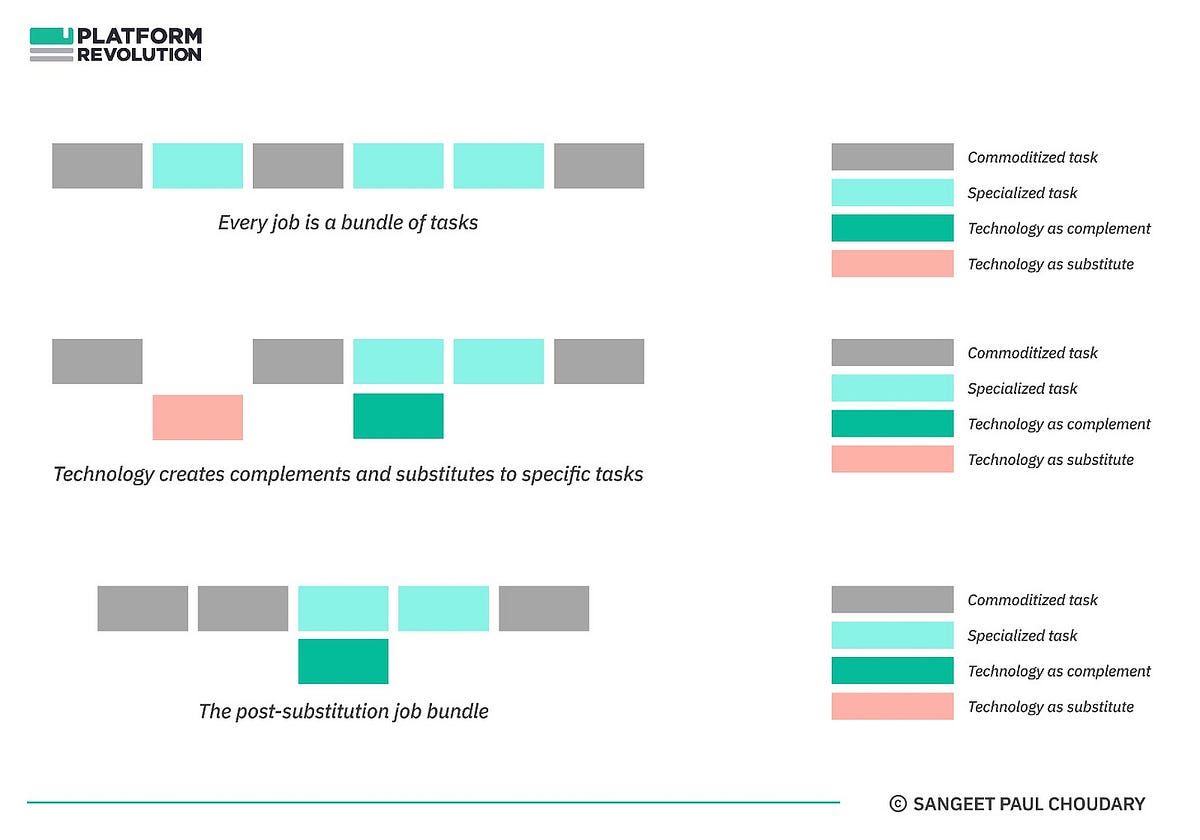AI won’t eat your job, but it will eat your salary

🌈 Abstract
The article discusses how AI will impact jobs and skill premiums, arguing that the key question is not whether AI will replace jobs, but whether it will erode the skill premium that humans can command. It explores four ways that AI can rebundle jobs, three sources of skill premium, and three ways that AI can erode this skill premium. The article also discusses how centralized market-making can accelerate the erosion of skill premiums.
🙋 Q&A
[01] Unbundling and rebundling of work
1. What are the four possible ways in which the job bundle gets rebundled?
- Status quo: No shift in value from the job bundle, so no effects on the skill premium.
- Value migration: AI augmentation migrates value towards the job bundle, increasing the worker's ability to charge a skill premium.
- Commoditization: AI absorbs value from specialized tasks and/or lowers the skill barrier to entry, decreasing the worker's ability to charge a skill premium.
- Eventual Substitution: The end game of augmentation could be full automation, resulting in the job being substituted.
2. How does AI augmentation impact the skill premium differently compared to previous technology cycles? AI is unique in its ability to commoditize learning advantages, in addition to specialized tasks. As AI augmentation enables lower-skilled workers to perform at par with higher-skilled workers, it makes the workers more substitutable and commoditizes the job.
[02] Three sources of skill premium
1. What are the three sources of skill premium discussed in the article?
- Skilling advantages: The premium commanded by higher-skilled workers over lower-skilled workers.
- Learning advantages: The ability to defend and grow the skill premium through continuous learning.
- Managerial advantages: The additional premium associated with combining skilling, learning, and planning/resource allocation capabilities.
2. How does AI erode the skill premium on learning advantages? AI can commodify and absorb the proprietary knowledge and learning advantages that workers develop over time. As workers use AI to augment their work, they generate data that trains the AI models, enabling the AI to eventually substitute the tasks previously performed by the higher-skilled workers.
[03] Skill premium on managerial advantages
1. How do AI agents differ from traditional software in their ability to impact the skill premium? AI agents are goal-seeking, allowing them to decompose goals into tasks, monitor progress, and engage with resources to accomplish the goals. This goal-seeking behavior enables AI agents to rebundle tasks and potentially replace the human-in-the-loop advantage, which was previously a source of skill premium.
2. How does centralized market-making accelerate the erosion of the skill premium? Centralized market-making, such as the rise of platforms like Uber, pits increasingly substitutable workers against each other, driving down the clearing price of job allocation. This, combined with the other factors that erode skill premium, converts the job market into a commodities market seeking the lowest possible price.